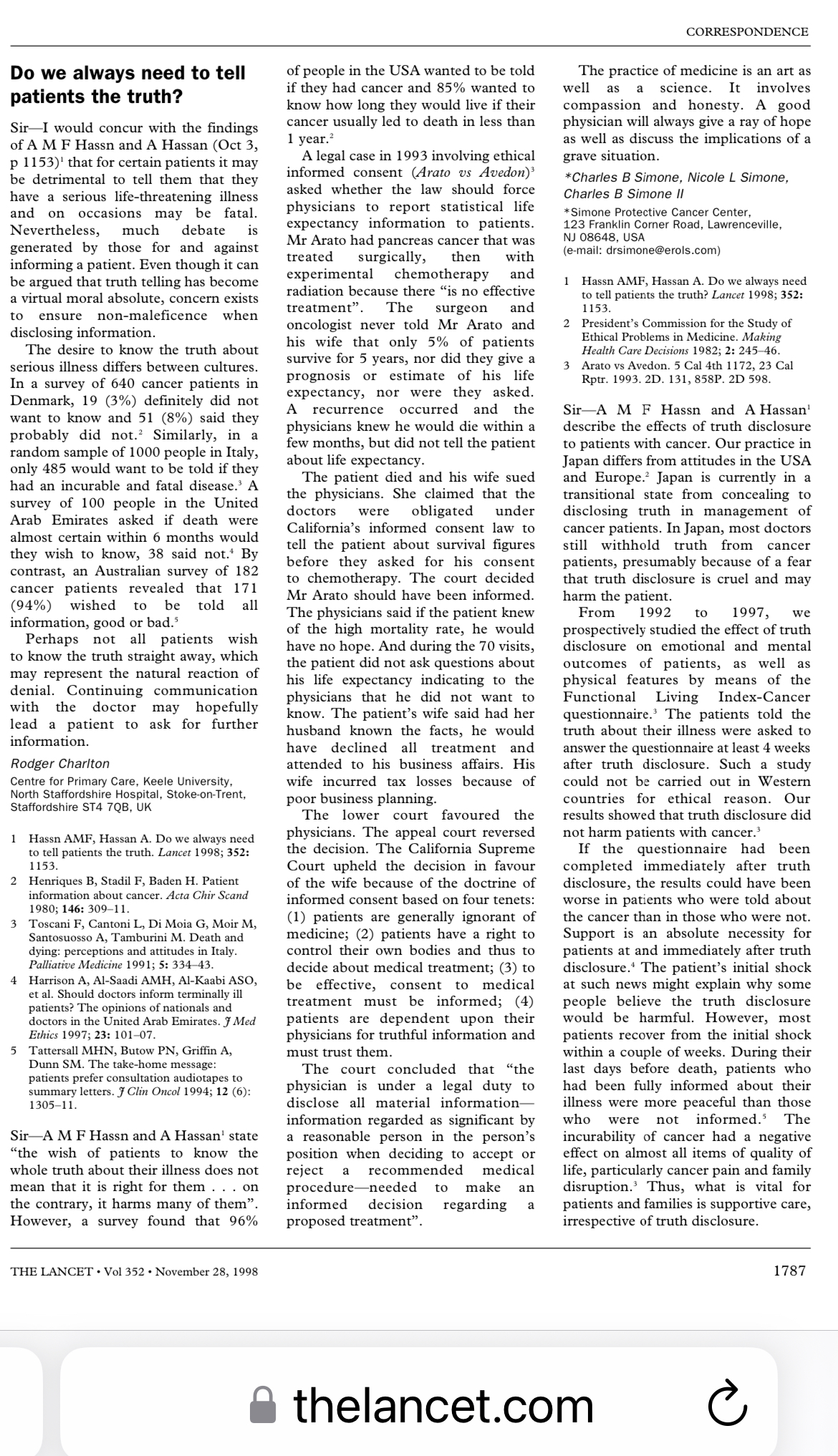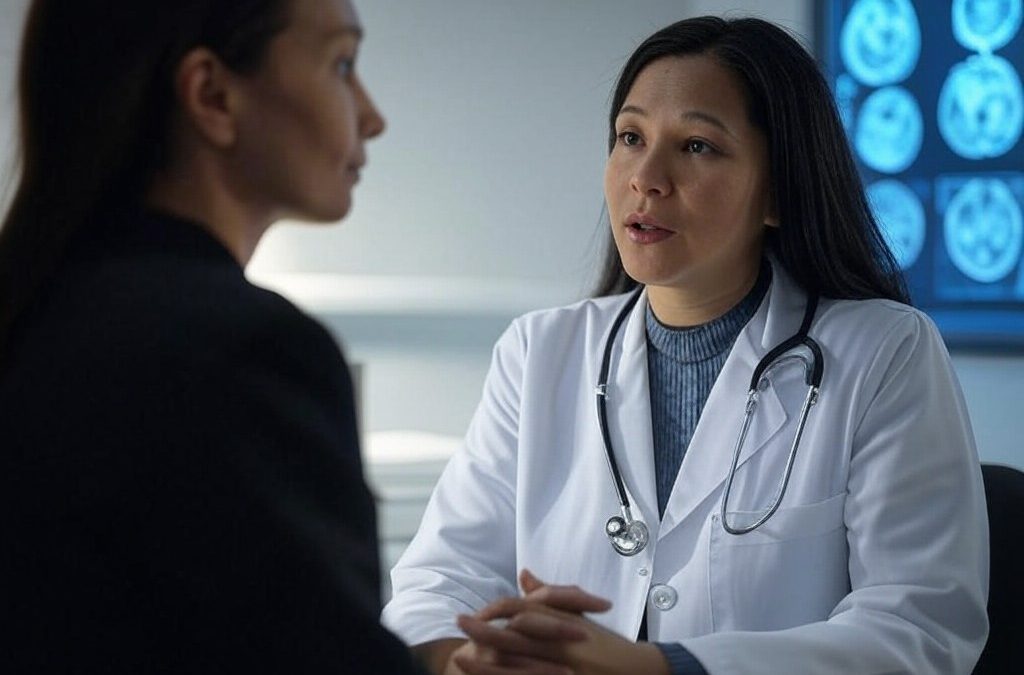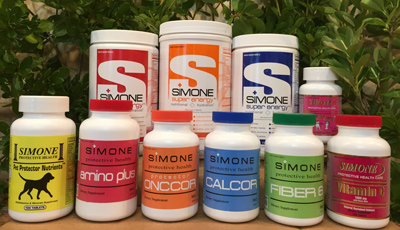4/24/2015
We do not diagnose disease or recommend a dietary supplement for the treatment of disease. You should share this information with your physician who can determine what nutrition, disease and injury treatment regimen is best for you. You can search this site or the web for topics of interest that I may have written (use Dr Simone and topic).
“We provide truthful information without emotion or influence from the medical establishment, pharmaceutical industry, national organizations, special interest groups or government agencies.” Charles B Simone, M.MS., M.D.
DO WE ALWAYS NEED TO TELL PATIENTS THE TRUTH?
Lawrenceville, NJ (Dr Simone) – In my experience, cancer patients who receive treatment know their situation. Even very young people know. A six-year-old boy who I was treating for leukemia at the National Cancer Institute, asked me what it was like in heaven. A national survey found that 96% of Americans wanted to be told if they had cancer and 85% wanted to know how long they would live if their cancer usually led to death in less than a year.
Moreover, a legal case involving ethical informed consent (Arato v. Avedon) asked whether the law should force physicians to report statistical life expectancy information to patients. Mr. Arato had pancreas cancer that was treated surgically, then with experimental chemotherapy and radiation because there “is no effective treatment.” The surgeon and oncologist never told Mr. Arato and his wife that only 5% survive for 5 years, nor did they give a prognosis or estimate of his life expectancy, nor were they asked. A recurrence occurred and the physicians knew he would die within a few months, but did not tell the patient about life expectancy. (Excerpted from Cancer and Nutrition with permission).
The patient died and his wife sued the physicians claiming that the doctors were obligated under California’s informed consent law to tell the patient about survival figures before asking him to consent to chemotherapy. The court decided Mr. Arato should have been informed. The physicians said if the patient knew of the high mortality rate, he would have no hope. And during the 70 visits, the patient did not ask questions about his life expectancy indicating to the physicians that he did not want to know. The patient’s wife said had the patient known the facts, he would have declined all treatment and attended to his business affairs. His wife incurred tax losses due to poor business planning.
The lower court favored the physicians. The appeal court reversed the decision. The California Supreme Court upheld the decision in favor of the wife because of the doctrine of informed consent based on four tenets:
-
-
Patients are generally ignorant of medicine.
-
Patients have a right to control their own bodies and thus to decide about medical treatment.
-
To be effective, consent to medical treatment must be informed.
-
Patients are dependent upon their physicians for truthful information and must trust them (making the doctor-patient relationship a “fiduciary” or trust relationship rather that an arm’s length business relationship).
The court concluded “the physician is under a legal duty to disclose all material information – information regarded as significant by a reasonable person in the person’s position when deciding to accept or reject a recommended medical procedure – needed to make an informed decision regarding a proposed treatment.”
The practice of medicine is an art as well as a science. It involves compassion and honesty. A good physician will always give a ray of hope as well as discuss the implications of a grave situation.
It is often easier to give another round of ineffective chemotherapy than to tell patients that there is nothing left in the anti-cancer arsenal. The clinician should sit with patients and families, hold their hands and tell them there is no way to control their cancer, but they will not be abandoned and will be made as comfortable as possible.
The poor results with conventional medicine are, of course, the whole basis for the ground swell concerning alternative medicine in the United States. Our culture emphasizes life and youth and vitality. We tend to shy away from talking about death and dying. Hope should always be given, but not false hope. We really need to start thinking in terms of EFFECTIVE or NONEFFECTIVE treatment and tell patients about treatments in those terms.

(c) 2017 Charles B. Simone, M.MS., M.D.




